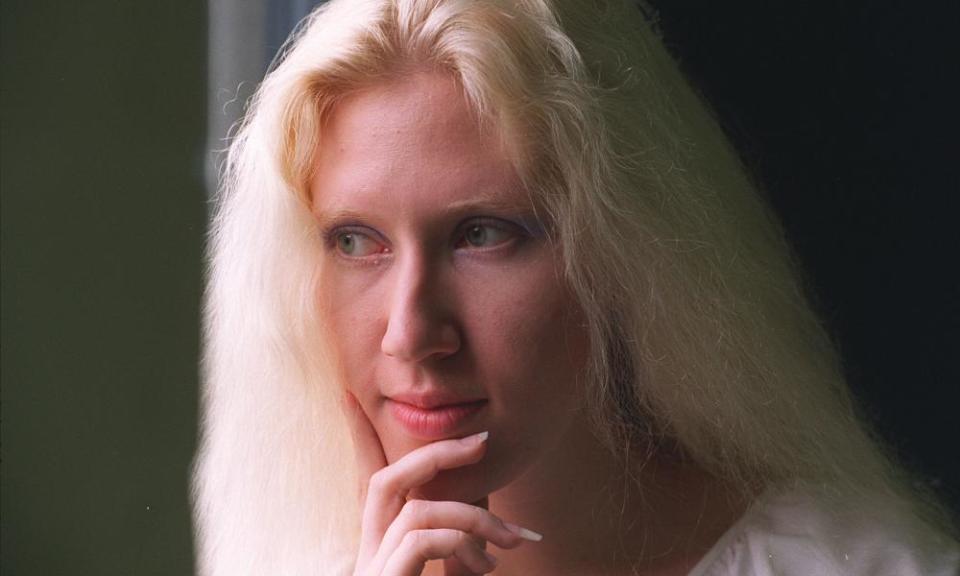'On brand': Helen Dale accused of plagiarising tweets

A controversial Australian novelist has been called out by a popular US podcaster for plagiarising their and other posts on social media.
Helen Dale – or Helen Demidenko and Helen Darville, as she has been variously known – came to prominence in Australia in the early 1990s for The Hand that Signed the Paper, her debut novel that was apparently informed by her Ukrainian ancestry.
But the book and its author were subsequently embroiled in scandal when it was revealed that “Demidenko” was in fact Helen Darville, the daughter of British immigrants.
Darville later changed her name to Dale. She now lives in the UK and works as a columnist for Spectator magazine.
On Monday, Dale posted screenshots of Facebook founder Mark Zuckerberg documenting his trip to Iowa to her own public page, with the comment: “Watching Mark Zuckerberg try casually to sidle into politics is like watching a very drunk person try to shoplift an air conditioner.”
This was word-for-word the comment made of Zuckerberg’s very public tour of Iowa on Twitter by PJ Vogt, the co-host of the popular US podcast Reply All.
The similarity was noted in a tweet on Sunday by Matt Burke, showing side-by-side screenshots with the comment: “On brand.”
On brand. pic.twitter.com/wD20cL3y8Z
— Matt Burke (@matttburke) June 25, 2017
Vogt responded on Monday (“I’ve been plagiarized before, but never by an award-winning novelist with thousands of followers. Thanks, @_HelenDale!”), before discovering that it was not the first time Dale had passed off one of his tweets as her own witticism.
Earlier this month Dale had posted to Facebook “Aaand if you want to make God laugh, call something ‘Final’”, almost identical to Vogt’s nearly three-year-old tweet of 8 July 2014.
“Look, my tweets are really not that good,” Vogt commented.
Oh my god apparently this has been going on awhile? Look, my tweets are really not that good. pic.twitter.com/piqfo3Ofk3
— PJ Vogt (@PJVogt) June 25, 2017
BuzzFeed Australia reported having found at least 15 instances where other people’s tweets had been republished by Dale on her Facebook without credit.
Dale told BuzzFeed over Twitter that she had been lifting the viral tweets “cos it’s amusing and I don’t like Twitter”, adding: “Don’t you have more important stuff to be writing about?”
She also sent a meme, showing a medieval-esque parchment with the text: “Behold! The field in which I grow my fucks. Lay thine eyes upon it and thou shall see that it is barren.”
Dale and Vogt have been contacted for comment by Guardian Australia.
What if people just gradually refuse to believe me that I'm me. Like she moves into my apartment, takes my precious dog.
— PJ Vogt (@PJVogt) June 25, 2017
Dale’s novel, The Hand that Signed the Paper, won the prestigious Vogel prize for an unpublished manuscript in 1993 and was published the following year.
It told the story of Vitaly, a Ukrainian peasant, who endures the destruction of his village and family by Stalin’s communists. Demidenko promoted the book in Ukrainian garb and said on countless panels and interviews that her novel was inspired by family history.
Her apparent close association with the subject matter helped her weather criticisms of antisemitism in the text.
In a column published by Fairfax on 27 June 1995, the conservative commentator Gerald Henderson wrote: “Helen Demidenko’s The Hand that Signed the Paper is a loathsome book – all the more so because the author insists that her first novel is not just a work of fiction.
“Regrettable (and no doubt unintentionally) this book will give comfort to racists and antisemites – from Australia’s Lunar Right League of Rights to the fascist wing of Russia’s Pamyat movement.”
The book went on to win the prestigious Miles Franklin award in 1995, when the author was aged 20 – making her the youngest-ever recipient of the prize.
But Demidenko became embroiled in scandal when it was revealed that her identity, as well as her Ukrainian heritage that had apparently informed the book, were both manufactured.
She was not the child of an illiterate Ukrainian immigrant father, as she claimed while publicising the book: in fact her name was Helen Darville, and she was the daughter of British immigrants.
The hoax sparked significant debate among writers and academics in the mid- to late-1990s about the writer’s right to fabricate a persona in their work.
Darville has not written another novel, although Fairfax Media has reported that she has a new novel in the pipeline: a courtroom drama called Kingdom of the Wicked, scheduled to be released in October.
Dale recently worked as a policy adviser to the Liberal Democrat senator David Leyonhjelm, until her resignation during last year’s federal election campaign. Leyonhjelm reportedly described her at the time as “quite good at social media, particularly Facebook and Twitter”.

 Yahoo News
Yahoo News 